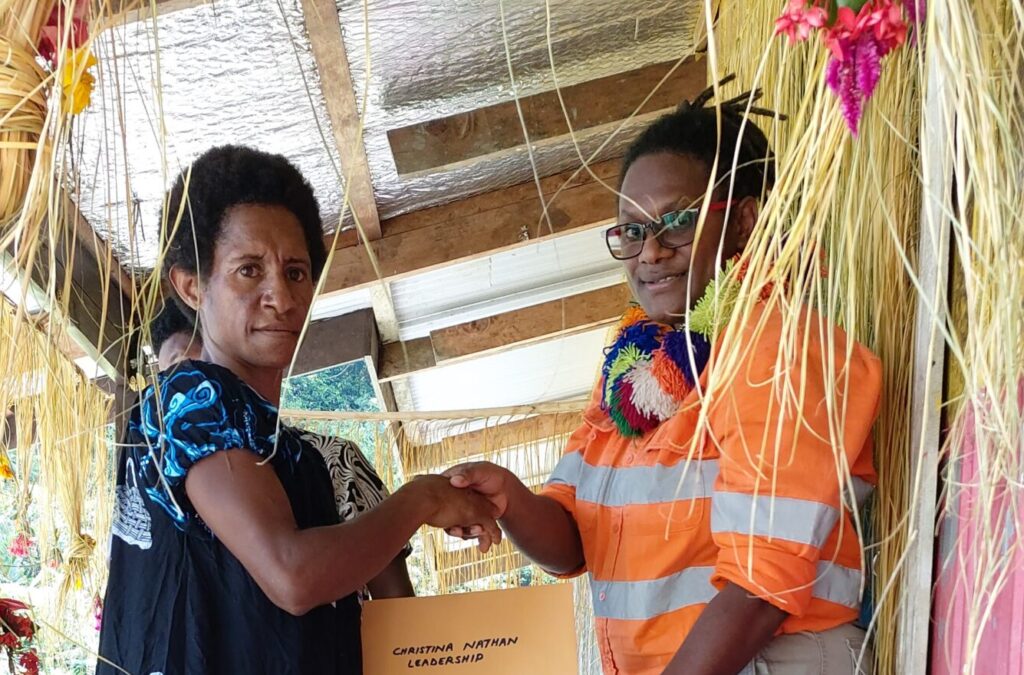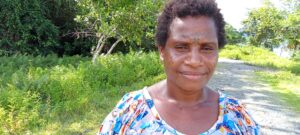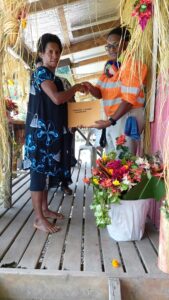
In the remote Frieda River communities of the Sepik region, a quiet revolution is unfolding – women and families are embracing family planning as a powerful tool for managing their health, futures, and livelihoods.
Thanks to Frieda River Limited’s (FRL) ongoing capacity-building training, individuals and couples amongst the customary landowners of the Frieda River copper-gold resource are now making informed decisions about when and how many children to have – based on personal, health and financial realities.
For local advocates Christina Nathan and Martha Ronald, family planning is more than just a medical service – it’s a pathway to dignity, wellbeing and sustainable family life.
Christina, 33, from Wameimin 2 village in Telefomin, is the mother of three children and a proud recipient of a family planning implant. She describes her decision to use the implant – one of the most effective, low-maintenance contraceptives available – as life-changing.
“This was one of the best decisions I’ve ever made,” she said. “It has allowed me to care properly for my children, support their education and maintain their health. With a smaller family, I can grow food in the gardens, help the children with their schoolwork, look after myself and participate in training programs like leadership and financial literacy.”
Christina, who left school after Grade 7, now finds herself back in a learning environment – this time, by choice and with purpose.
Downriver in Ambunti’s Paupe village, Martha, also in her 30s, made a deeply personal decision to undergo family planning after a near-death experience during childbirth. A mother of four and classified as high-risk due to her health status and poor nutrition in her community, she speaks candidly about how family planning saved her life.
“I knew I wouldn’t survive another complicated childbirth,” Martha reflected. “Family planning gave me a second chance – and the opportunity to be there for the children I already have.”
Crucially, both women say their partners supported their choices – an encouraging sign in communities where women’s health decisions are often not prioritised.
Fredah Wantum, FRL’s Community Development Officer, who is a registered nurse and midwife, is inspired by the growing momentum.
“It’s rare in many rural areas for women to have control over their reproductive choices,” Fredah said. “Hearing Christina and Martha speak with such confidence about their rights and futures is exactly the outcome we hope for. Our capacity-building programs are not just saving lives – they’re enhancing them. They’re giving women a voice and giving families the chance to thrive.”
Since 2017, hundreds of women and teenage girls in the seven landowning communities of FRL have participated in the company’s training programs, which focused on health, leadership and life skills. These initiatives are part of FRL’s broader commitment under the proposed Sepik Development Project (SDP) – a transformative, multi-billion-kina proposal to responsibly develop one of the world’s largest untapped copper-gold resources. The SDP encompasses the Frieda River Copper-Gold Project, the Frieda River Hydroelectric Project, the Sepik Power Grid, and the Sepik Infrastructure Project, which is expected to connect the region to the rest of the country and beyond.


